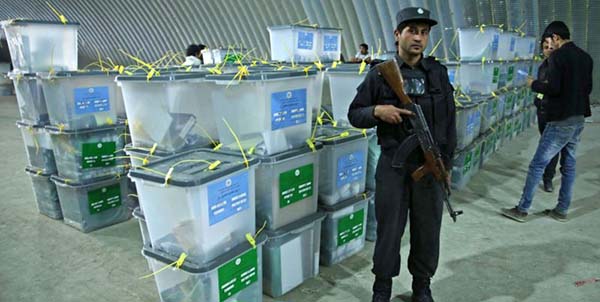Laws of nature discovered and formulated by natural scientists sometimes find applicability on social phenomenon as well. For instance the S-shaped poverty trap explained by development economists can be compared with Newton’s Law of Gravity. Our understanding from Gravity Law is that any object unless receives an external force or forces exceeding the gravity force will return back to the earth. Similarly, it is argued that poverty is a self-reinforcing disease and shown by empirical evidence in various countries that poverty is a trap-like phenomenon, where poor remains poor and even become poorer unless helped out by poverty alleviation programs implemented by the state or development aid organizations, which by its nature is an external force. However, this argument is not favored by mainstream economists and considered unnatural to the knowledge of economics based on market principles.
I bring out the same argument for war and violence. The imposed war on Afghanistan by the Soviet invasion created an atmosphere of violence which has rooted in the blood and minds of people in this part of the world. Any domestic attempt to restore role of law and escape from violence not only didn’t help, rather aggravated the problem and brought the country back to violence, which is non other the violence trap like the gravity and poverty trap! 2001 marked the beginning of another external force, where the international community joined hands to restore civilian behavior and rule of law in the country, which has partially worked so far; but still for the complete escape from violence trap, the external force needs to continue to check violence and emergence of disturbance to security.
Similarly, the 2014 presidential election in Afghanistan is now in a trap! The election which was held as per the constitution of Afghanistan and with the financial support of international community was technically an Afghan-led process. The Independent Election Committee (IEC) has been legally given the mandate to manage the overall election process and as far as the technicality of the process is concerned, the IEC has done its job. The Afghan people on their part fulfilled their job as active citizens through their large scale participation in the election to decide their political leadership. However, tensions started taking shape right after election was closed and counting of the ballots started. The IEC has been charged for fraud, the government has been blamed for its partiality and the overall process has been called fraudulent. The deadlock was broken by the intermediation of John Kerry, US Foreign Secretary with an agreement between the two electoral teams to form ‘government of national unity’ and 100 percent audit of the ballots. Since, violence aggravates violence, fraud reinforces fraud and mistrust further enhances mistrust, despite US intervention tension between the two electoral teams are back to the paddle and again we are in the trap. All the legal mechanisms to convince the rival teams have failed and their verbal animosity almost places election at the brink of failure and the public loses faith in the system. If this process of condemnation continues the tensions will touch the fragile ethnic sensitivity and escalate to violence and break from rule of law. Therefore, the trap is so strong to maintain the saddle path equilibrium of lawlessness, mistrust and violence in a progressive way. Perhaps the external intermediation by the US and UN was not strong enough to break away from the trap. The charges of fraud on IEC is so strong making it unacceptable to one of the teams to abide by its decisions, the government led by President Karzai can’t constitutionally interfere in the affairs of election which would affect the results and the win-win agreement between the two teams seems to have failed with the new phase of disagreements and verbal tensions. Direct US intervention is neither supported internationally, nor favored by Afghan people. This condition in itself is a state of emergency in the country as the current government can’t function because its legal term is over; neither there is another alternative. If interim government is to be established to set the stage for another election, according to Afghanistan’s constitution the Loya Jirga should be called upon to decide the interim government, which would in turn impose huge financial burden, impossible without international support; and the time and opportunity costs will be immeasurable. Hence, any domestic efforts to restore faith and role of law are either technically not possible or too heavy financially. I would suggest that only an external force like the UN can lead a committee for the escape from the 2014 election trap scenario in Afghanistan. The mandate should be strong enough not to let the parties return to their existing tensions and accept the results whatsoever. However, an external solution shall reduce people’s hope from elections in the future and may affect their participation significantly; but the cost of current deadlock is more than that.

